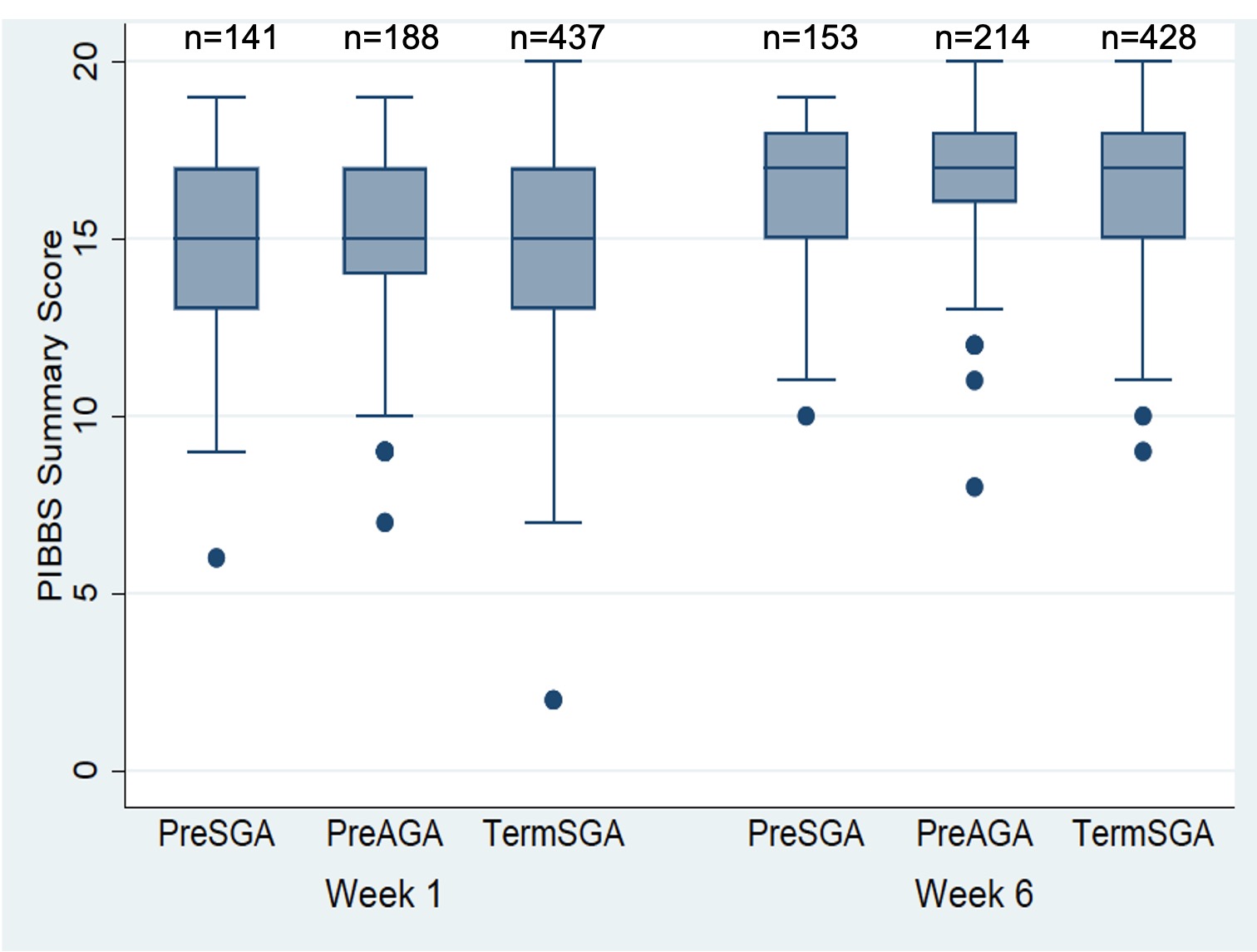Global Neonatal & Children's Health
Category: Abstract Submission
Global Child and Adolescent Health III
521 - An assessment of breastfeeding behavior among low-birthweight infants weighing 1500-2499 grams in India, Malawi, and Tanzania.
Sunday, April 24, 2022
3:30 PM - 6:00 PM US MT
Poster Number: 521
Publication Number: 521.318
Publication Number: 521.318
Krysten North, Harvard Medical School, Boston, MA, United States; Linda Vesel, Ariadne Labs, Harvard TH Chan School of Public Health, Boston, MA, United States; Anne C. Lee, Brigham and Women's Hospital, Department of Pediatric Newborn Medicine; Harvard Medical School, Boston, MA, United States; Roopa M. Bellad, KAHERs J N Medical college, Belagavi, Karnataka, India; Sangappa M. Dhaded, J.N.Medical College,, Belagavi, Karnataka, India; Shivaprasad S. Goudar, J N Medical College Belgaum, Belgaum, Karnataka, India; Irving Hoffman, University of North Carolina at Chapel Hill School of Medicine, Efland, NC, United States; Tisungane Mvalo, University of North Carolina Project Malawi, Lilongwe, Lilongwe, Malawi; Melda Phiri, University of North Carolina Project Malawi, Lilongwe, Lilongwe, Malawi; Christopher Sudfeld, Harvard T H Chan School of Public Health, Boston, MA, United States; Katherine Semrau, Harvard Medical School & Ariadne Labs, Boston, MA, United States; Melissa F. Young, Emory University, Atlanta, GA, United States; Karim Manji, Muhimbili University, DaresSalaam, Dar es Salaam, Tanzania

Krysten North, MD, MPH
Instructor
Harvard Medical School
Boston, Massachusetts, United States
Presenting Author(s)
Background: Low birthweight (LBW; < 2.5kg) infants often have difficulty breastfeeding due to their small size or immaturity. PIBBS (Preterm Infant Breastfeeding Behavior Scale) is a 20-point scoring system designed to assess the quality of a breastfeeding session based on direct observation of mother-infant dyads.
Objective: Our objective was to describe PIBBS scores among a cohort of mother-LBW infant dyads and to explore the association between early PIBBS scores and two key outcomes - exclusive breastfeeding duration and infant growth velocity.
Design/Methods: We conducted PIBBS assessments among a cohort of infants enrolled in the Low Birthweight Infant Feeding Exploration (LIFE) observational study of infant feeding and growth. All infants in this cohort were low birthweight (1500- < 2500g) and belong to one of three phenotypes - preterm-small for gestational age (SGA), preterm-appropriate for gestational age (AGA) or term-SGA. Most preterm infants were late preterm (34-36 weeks gestation). Breastfeeding assessments were completed by trained research assistants for more than 750 infants in India (Odisha and Karnataka states), Malawi, and Tanzania. These assessments were conducted via direct observation of mothers during a breastfeeding session.
Results: The LIFE cohort consists of 1114 infants who were preterm-SGA (19%), preterm-AGA (26%), or term-SGA (55%). The mean PIBBS score at age 1 week was 15.0 (SD 2.7); 39.6% (312/787) of infants had low PIBBS scores ( < 15). PIBBS scores increased between weeks 1 and 6. Mean PIBBS score at week 6 was 16.4 (SD 2.1); 19.2% of infants (157/817) had a low score. Both weeks 1 and 6 PIBBS scores were similar across the three phenotypes (Figure 1). We found no difference in mean PIBBS score at week 1 between infants exclusively breastfed at 4 months and those who were not [Mean difference (MD) exclusive - non-exclusive 0.32 (-0.07 to 0.71); p=0.11]. Infants with a PIBBS score >15 at week 1 gained an average of 3 g/kg/day more from weeks 1 to 6 than infants with low week 1 PIBBS scores ( < 15) (p=0.006).Conclusion(s): PIBBS scores increased from 1 to 6 weeks of age suggesting that breastfeeding quality improved as infants matured. Although preterm infants are known to have immature feeding patterns, preterm infants performed similarly to the term-SGA infants in our cohort suggesting that small term infants may struggle with breastfeeding in a manner similar to late preterm infants. Overall, we found that widespread implementation of PIBBS may be limited by the complexity of training required for proper use of the tool.
PIBBS scores by infant phenotype at weeks 1 and 6 of age.
Table 1: High versus low PIBBS score at week 1 and exclusive breastfeeding status at 4 months..png)
Objective: Our objective was to describe PIBBS scores among a cohort of mother-LBW infant dyads and to explore the association between early PIBBS scores and two key outcomes - exclusive breastfeeding duration and infant growth velocity.
Design/Methods: We conducted PIBBS assessments among a cohort of infants enrolled in the Low Birthweight Infant Feeding Exploration (LIFE) observational study of infant feeding and growth. All infants in this cohort were low birthweight (1500- < 2500g) and belong to one of three phenotypes - preterm-small for gestational age (SGA), preterm-appropriate for gestational age (AGA) or term-SGA. Most preterm infants were late preterm (34-36 weeks gestation). Breastfeeding assessments were completed by trained research assistants for more than 750 infants in India (Odisha and Karnataka states), Malawi, and Tanzania. These assessments were conducted via direct observation of mothers during a breastfeeding session.
Results: The LIFE cohort consists of 1114 infants who were preterm-SGA (19%), preterm-AGA (26%), or term-SGA (55%). The mean PIBBS score at age 1 week was 15.0 (SD 2.7); 39.6% (312/787) of infants had low PIBBS scores ( < 15). PIBBS scores increased between weeks 1 and 6. Mean PIBBS score at week 6 was 16.4 (SD 2.1); 19.2% of infants (157/817) had a low score. Both weeks 1 and 6 PIBBS scores were similar across the three phenotypes (Figure 1). We found no difference in mean PIBBS score at week 1 between infants exclusively breastfed at 4 months and those who were not [Mean difference (MD) exclusive - non-exclusive 0.32 (-0.07 to 0.71); p=0.11]. Infants with a PIBBS score >15 at week 1 gained an average of 3 g/kg/day more from weeks 1 to 6 than infants with low week 1 PIBBS scores ( < 15) (p=0.006).Conclusion(s): PIBBS scores increased from 1 to 6 weeks of age suggesting that breastfeeding quality improved as infants matured. Although preterm infants are known to have immature feeding patterns, preterm infants performed similarly to the term-SGA infants in our cohort suggesting that small term infants may struggle with breastfeeding in a manner similar to late preterm infants. Overall, we found that widespread implementation of PIBBS may be limited by the complexity of training required for proper use of the tool.
PIBBS scores by infant phenotype at weeks 1 and 6 of age.

Table 1: High versus low PIBBS score at week 1 and exclusive breastfeeding status at 4 months.
.png)
